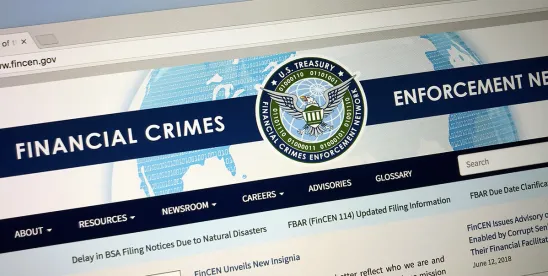The passage of the Anti-Money Laundering (AML) Whistleblower Improvement Act in December 2022 was heralded by whistleblower advocates as a major development which would transform the ability of the U.S. to crack-down on money laundering and sanctions evasion. On May 6, Andrea Gacki, Director of the Financial Crimes Enforcement Network (FinCEN), highlighted the success so far of the law and the AML and Sanctions Whistleblower Program it helped establish.
“A significant component of such [enforcement] efforts is FinCEN’s commitment to implementing, and realizing the full potential of, its new Anti-Money Laundering and Sanctions Whistleblower Program,” Gacki stated at SIFMA’s Anti-Money Laundering & Financial Crimes Conference.
“This program holds tremendous potential as an enforcement force-multiplier,” Gacki continued. “Whistleblowers have submitted information relating to some of the most pressing policy objectives of the United States, from Iran- and Russia-related sanctions evasion to drug-trafficking to cyber-crimes and corruption. We have received over 270 unique tips since the program’s inception, and many of the tips received have been highly relevant to many of Treasury’s top priorities.”
Established by the AML Act of 2020, the AML Whistleblower Program originally struggled to incentivize whistleblowers to come forward prior to the passage of the AML Whistleblower Improvement Act, which reformed and expanded the program. Whistleblower advocates and members of Congress who supported the Improvement Act promised that it would turn the AML Whistleblower Program into a highly effective program critical to FinCEN’s enforcement efforts.
While the Treasury Department has yet to publish regulations for the program, “the program is actively receiving, reviewing, and sharing tips with our enforcement partners,” according to Gacki. In February, she stated that “We are planning to issue an NPRM to propose rules for the whistleblower award program this summer, and we hope to begin paying awards out in the not-too-distant future.”
During her speech, Gacki also highlighted the landmark $3.4 billion civil money penalty levied by FinCEN against Binance this past November over widespread and significant violations of the Bank Secrecy Act (BSA). It has been reported that numerous whistleblowers provided information to U.S. authorities about Binance’s misconduct.
The AML Whistleblower Program offers anonymous reporting channels, monetary awards, and anti-retaliation protections to individuals who voluntarily disclose violations of the BSA and other money laundering schemes as well as sanctions evasion.
Through the program, qualified whistleblowers, individuals who voluntarily provide original information that leads to a successful enforcement action, are entitled to monetary awards of 10-30% of the funds collected by the government in the action connected to their disclosure.
Geoff Schweller also contributed to this article.





 />i
/>i

